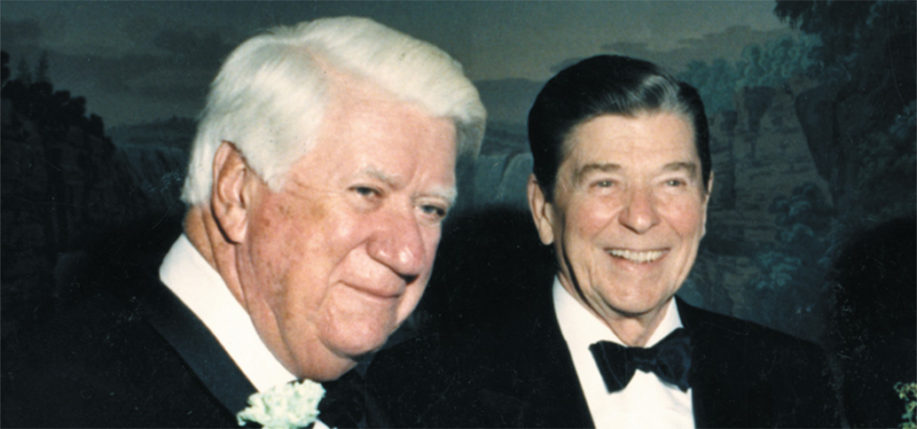New papers show influence with Reagan.
℘℘℘
Newly released files from the Reagan White House papers show that the Irish-American president was persuaded by a personal appeal by then House Speaker Thomas “Tip” O’Neill to intervene in the Northern Ireland issue.
The Boston Globe, which surveyed the files under the Freedom of Information Act, revealed that following O’Neill’s impassioned appeal, Reagan made a personal approach to British Prime Minister Margaret Thatcher, his closest friend among world leaders.
Then Irish Ambassador to the U.S. Sean Donlon told the Globe that the Reagan intervention was the beginning of the U.S. involvement in Northern Ireland, which led to the Clinton intervention during his presidency.
On December 13, 1984, O’Neill wrote to the president and stated “the best hope for a peaceful, lawful, and constitutional resolution to the tragedy of Northern Ireland may be in serious jeopardy as a result of Mrs. Thatcher’s public statements.” O’Neill was referring to the deliberations of the New Ireland Forum, which included all of Ireland’s constitutional nationalist parties and was looked on with deep suspicion by Thatcher.
In a now infamous statement made by Thatcher after she met then Irish leader Garret FitzGerald, she dismissed the findings of the New Ireland Forum, all of which called for a form of united Ireland, by saying “Out, Out, Out,” to each one.
Relations between the Irish and British governments reached a low point thereafter until Reagan’s intervention. After O’Neill’s approach, Reagan met Thatcher on December 22 and wrote to the Speaker afterwards.
“I made a special effort to bring your letter to her personal attention and to convey your message of concern,” Reagan wrote. “I also personally emphasized the need for progress in resolving the complex situation in Northern Ireland and the desirability for flexibility on the part of all the involved parties.”
Thatcher agreed to Reagan’s request and soon resumed talks with FitzGerald. In November of 1985 the two countries signed the Anglo-Irish Agreement, which for the first time ever recognized an Irish government role in Northern Ireland. The Reagan papers also show how O’Neill aided the new talks by allowing Thatcher to address a Joint Session of Congress.
The files also reveal how Reagan rebuffed O’Neill when he asked him to intervene on behalf of the ten I.R.A. hunger strikers who later died in the H Blocks in 1981.
“Intense media coverage of the hunger strike in the United States has dramatically improved the image of the Provisional I.R.A.,” O’Neill wrote. “By refusing to negotiate regarding prison rules, Mrs. Thatcher is permitting the terrorists to undo significant political progress.”
Reagan, however, refused to ask Thatcher to negotiate on the issue and also refused to meet with members of Congress who wished to talk him into some action. The National Security Advisor, Richard Allen, wrote, “There is little to be gained from such a meeting.” Allen was upset at the “verbal harassment” that Irish-American demonstrators were giving British diplomats over the hunger strikes in the U.S., the files reveal.
Reagan officials also tried to use their favors on Ireland to push O’Neill into a more conciliatory attitude toward Reagan’s war on the Nicaraguan government via the Contras. “We hope to use this as a lever against ‘Tip’ in order to get Contra aid moving,” wrote an official from the National Security Council.
The State Department, however, was ever resolute that Ireland should never be brought up with the British. “To be very frank I don’t believe we should allow ourselves to be used by the Irish; particularly since the Irish have not been supportive of our interests on issues such as Central America,” wrote Reagan State Department aide Peter Sommer to Robert McFarlane, the National Security Advisor. ♦


Leave a Reply